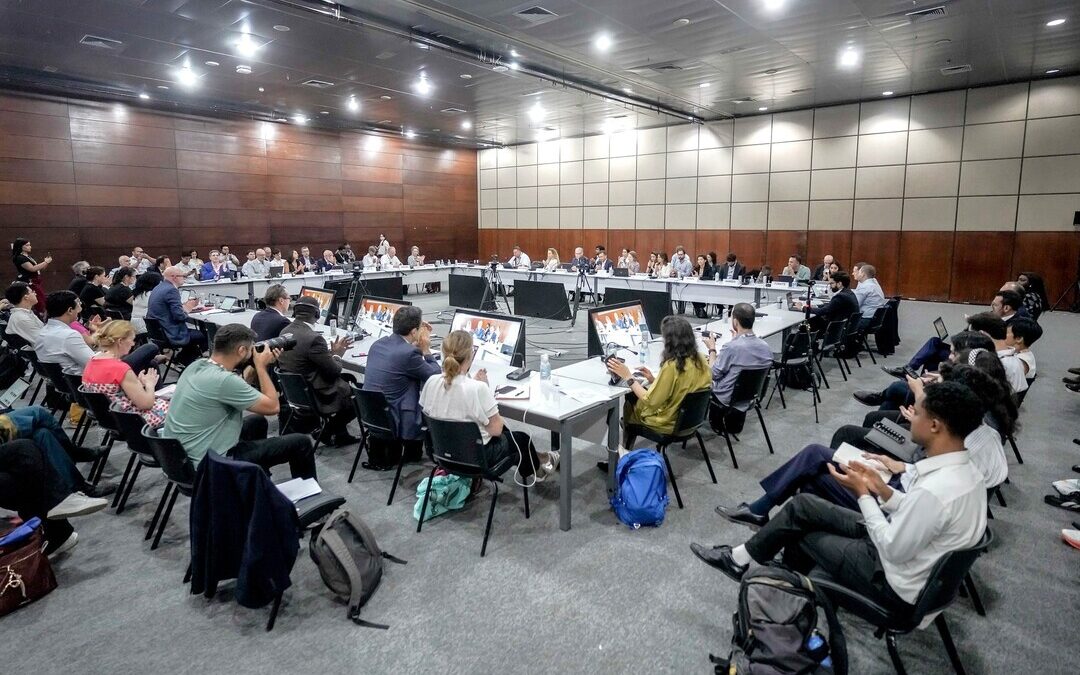Global Leaders Seal Belém Declaration to Speed Green Industrialization at COP30
Global leaders unite to advance green industrialization and strengthen climate action through coordinated policies and partnerships.
Governments, industry groups, and multilateral institutions endorsed a new global push for green industrialization at COP30 on Friday, signing the Belém Declaration to accelerate decarbonization in heavy-emitting sectors and expand clean technology industries.
The pact aims to link climate action with economic opportunity, especially for the Global South.
Officials said the agreement marks a shift from broad pledges to coordinated implementation. They stressed that the next five years will decide whether countries advance fast enough to align with the Paris Agreement and deliver stronger climate action.
Brazil’s Vice President Geraldo Alckmin said the transition must strengthen economic transformation. “Climate goals must be matched by real economic transformation,” he stated. “Green industry is about advancing sectors and creating future-oriented jobs, ensuring that all countries, especially those in the Global South, can lead and benefit from this new era of sustainable prosperity,” he added.
Focus on Fair and Inclusive Growth
The declaration says industrial transformation must reduce emissions while protecting communities and supporting quality jobs. It also notes that green supply chains can boost economic resilience, particularly in emerging economies.
COP30 CEO Ana Toni welcomed the rapid shift from negotiation to execution. “Green industrialization is now an irreversible agenda, and we need to work together to ensure that all countries advance in the best way possible,” she said. “We can bring other countries with us, engage additional industries, and work with governments and lawmakers to understand the framework in each case,” she added.
Creating a Global Framework for Delivery
The signatories agreed to establish a coordination and delivery mechanism supported by a new UNIDO-hosted Secretariat.
The structure will guide joint efforts, monitor progress, and align priorities with the Global Stocktake. Leaders aim to launch the mechanism at COP31 as part of wider climate action efforts.
UNIDO Director General Gerd Müller said the shift connects high-level commitments with practical outcomes.
“We are connecting climate goals to concrete actions for industry, mobilizing innovation, investment, and inclusion. UNIDO is proud to support this effort alongside partners to ensure not only industrial decarbonization, but also development, job creation, and technological progress,” he concluded.
Building Broader Alliances
The declaration urges countries and institutions to expand cooperation, share technical solutions, and mobilize finance for emerging economies. It also calls for stronger information sharing through COP Activation Groups to reduce duplication and accelerate results tied to global climate action.
Twelve countries and more than 20 organizations have backed the declaration so far. Supporters include Australia, Germany, Indonesia, South Africa, the United Arab Emirates, and major industry alliances in steel, cement, and renewable energy.
Officials said the pact offers one of the most coordinated attempts yet to align industrial policy with global climate action goals. They emphasized that steady leadership and fast delivery will determine their real impact.
Also Read:
Baku Declaration Sets Global Agenda for Water and Climate Resilience
Nirmal Menon
Related posts

Subscribe
Error: Contact form not found.


